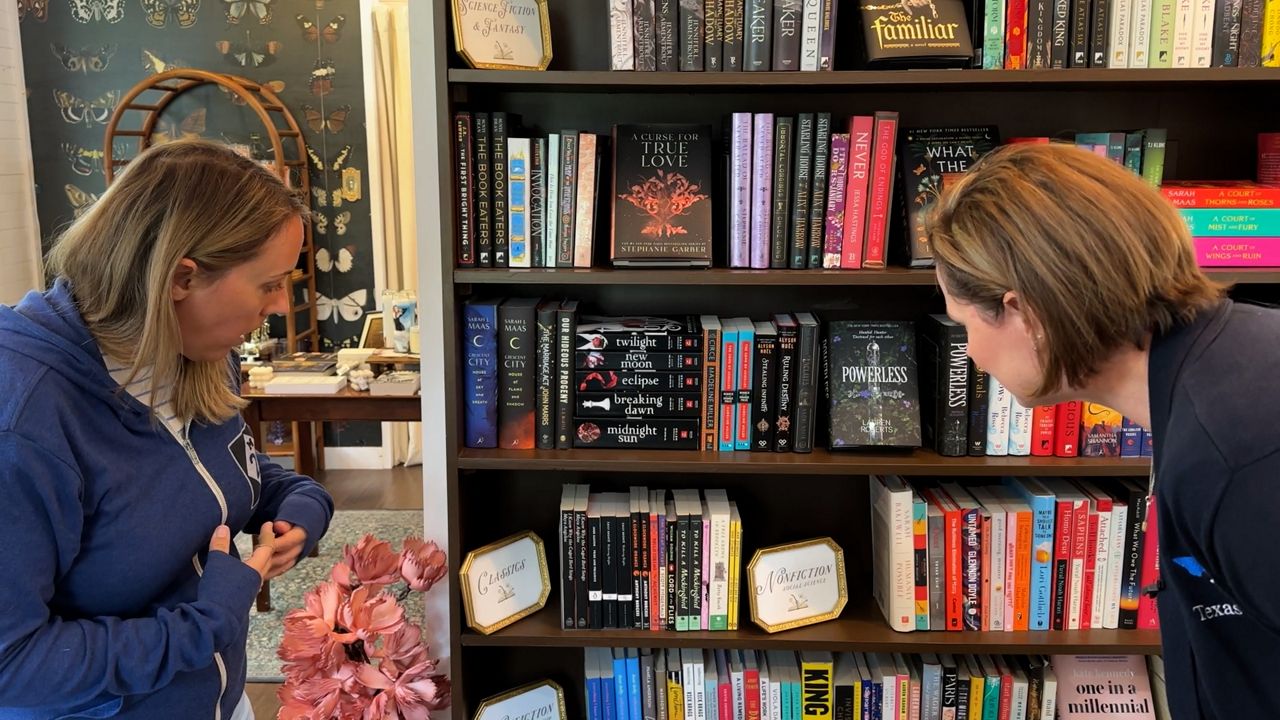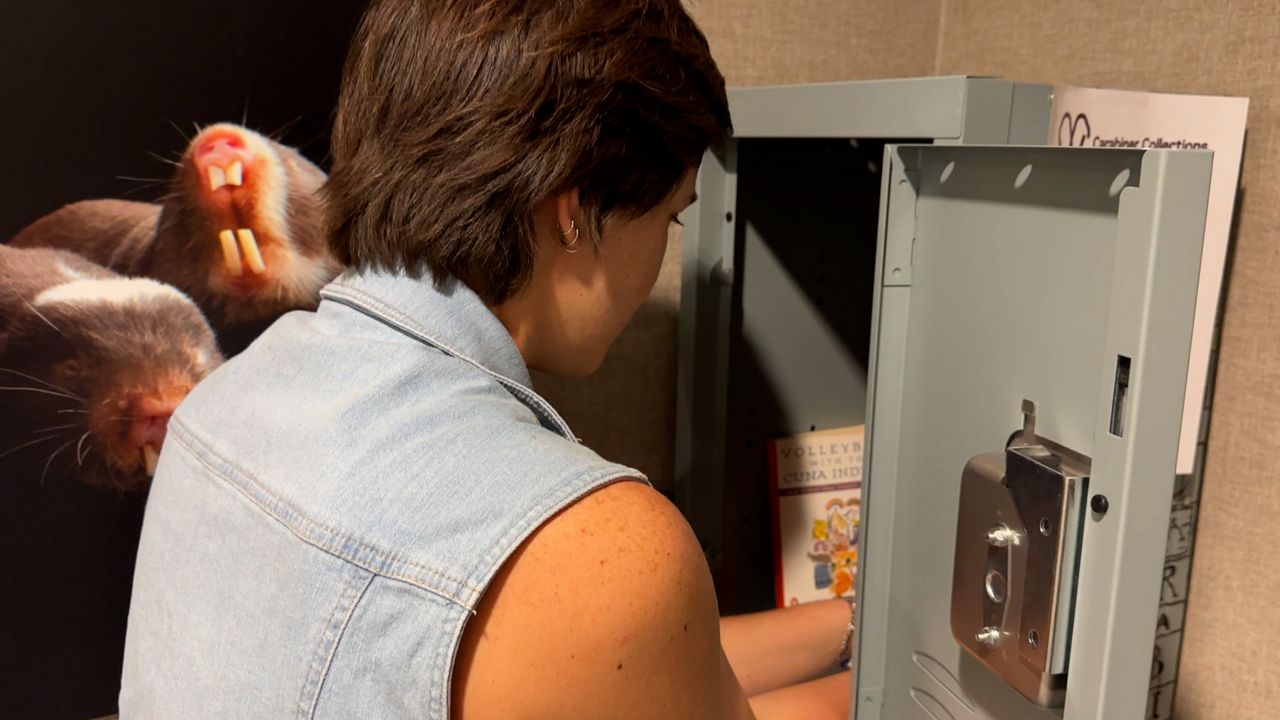BRAZOS VALLEY, Texas — In rural areas of the Texas such as Brazos Valley, finding LGBTQIA+ reading material has become like locating a needle in a haystack.
“This was the most banned book in Texas the past year,” free speech advocate Jenna Turpin said. “I wanted to check a book out and it had already been banned the same week. Try to provide these resources to people because they’re the resources I really wanted to see when I moved to Texas, and I know Jordan and Soleil wished they had growing up.”
With that mission in mind, Carabiner Collections was born. It's a nonprofit community library started by Turpin and fellow advocates Jordan Anderson and Soleil Gignac.
“We use this quote, 'You can’t be what you can’t see,' and this is just people’s opportunities to see all the stories that are possible for their futures,” Turpin said.
According to the American Library Association, Texas banned or contested more than 1,500 books last school year, more than any other state. However, the trio is working on putting together an impressive collection. Interested readers can still obtain a copy at their pop-up stands or through a confidential locker checkout.
“It started just trickling in,” Anderson said. “We started with 10 books with a few authors and ended up with 500-plus books with authors just sending us books and books and books.”

North Texas state Rep, Jared Patterson authored HB900, or the Reader Act, which set stricter standards as to what can and can’t be placed on state bookshelves. In an interview with Spectrum News 1, the legislator said conservative leadership isn’t focused on censorship; rather, they're simply keeping sexually explicit materials away from minors.
“It’s a relatively new phenomena that these books are so pervasive,” Patterson said. “I fully expect there to be additional books added to quote “the list,” and I fully expect parents and teachers to be rooting them out of the school districts.”
On the other side of the conversation, Kelsey Kling, policy expert for the Texas branch of the American Federation of Teachers, believes it’s an opening to attack any access to information.
“It’s a slippery slope,” Kling said. “First they come for the marginalized community stories. What’s next? Are they going to come for basic history, anything that challenges the prevailing narrative of the majority party?”
While it’s only been about 10 months since the trio began their nonprofit, they say they are hoping to obtain additional grants for their ambitious future plans.
“A book bus leading a Pride parade across Texas, that would be a statement in itself,” Gignac said.
However, in the short term, the young members of academia take stock in creating a safe space for those whose story is becoming harder to find across the Lone Star State.
“It’s a total success if people can sit down and have a conversation over a queer book without it being something political or charged in any way,” Gignac said.




